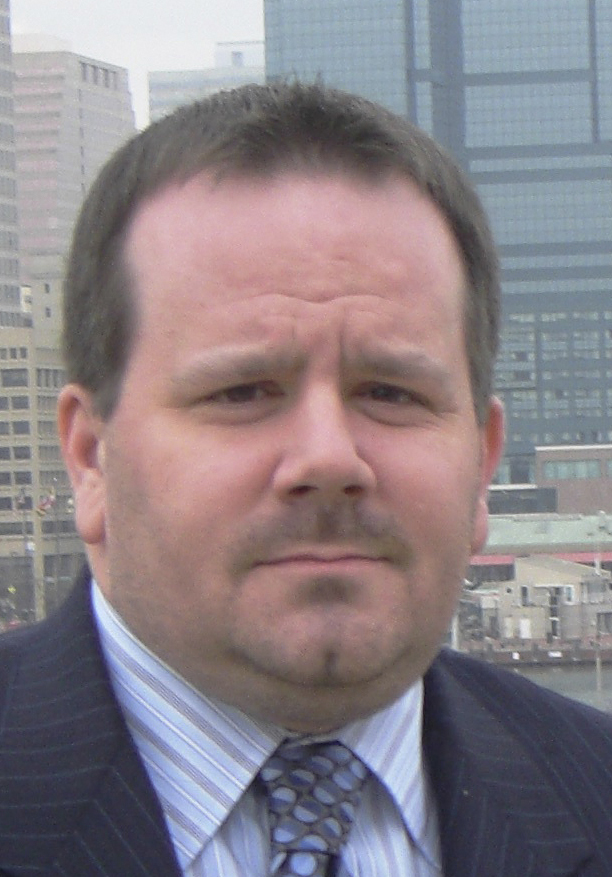Problem gambler comes out a winner

He lost everything. His wife and three children. His parents’ loyalty. His home. His car. His friends. His freedom. He had stolen from those closest to him and abandoned those he should have protected most.
He sat on train tracks one day, praying the locomotive would arrive and splatter his corrupt existence to bits. It didn’t.
So the doctor wanted to know what it would finally take, how much more pain he could give others and endure himself, how many more years he was willing to sit in jail, how many more times he could risk the train being on time.
"I looked her in the eyes and said, ‘If you could guarantee me I could be even after today, that would be it,’ " said Michael Osborne.
Yep. Even then, he would have chased action. He would have bet.
If you don’t believe compulsive gambling is an illness, you haven’t heard the story of a man like Osborne. How he arrived in town this week — at the request of the federal government to speak with IRS, FBI and vice agents during a seminar on illegal sports gambling. His is a journey of dependence and dishonesty, of recognition and rehabilitation.
It is estimated an average of $230 billion is illegally wagered on sports each year in the United States, far more than 10 times the amount bet legally in Nevada. This second, in thousands of dorm rooms and basements and corporate offices across the country, from teenagers to retirees, from starving students to multimillionaires, hopeful eyes stare at computer screens and bet on sports via the Internet.
It is an industry that has grown far too immense for federal officials to fully control, vast enough that offshore props have reached the insane point of offering action on whether Heather Mills’ leg would fall off during last season’s "Dancing With the Stars."
"It was out there, so people must have been betting on it," Osborne said.
No amount of gaming bills will stop the millions who type their credit card information into those accounts. It’s amazing the government hasn’t made a stronger push to legalize such bookmaking, in order to at least levy taxes and see some return.
Osborne agrees, which is why his pursuit is centered on that 4 percent to 5 percent of gamblers who reach the wretched state he once knew. It’s not that he is against betting on sports. He’s just against it for those who can’t control themselves, whose judgment tends to ruin lives, theirs and innocent ones.
"I want them to know there is another side to the coin," said Osborne, now executive director of Harbour Pointe, the Baltimore-based residential treatment facility solely dedicated to compulsive gambling. "Like alcohol and drugs, it’s a treatable addiction."
Often, though, it takes going to hell and back and for your wife to have good timing to beat it.
Osborne began betting at age 15. NFL mostly. He was a young kid walking around with $1,500 of winnings in his pockets, and it felt good, so he continued to chase the highs like you might a winning lottery ticket blowing in the wind.
But the lows were almost deadly. He eventually embezzled more than six figures from his real estate company to cover betting losses, was sentenced to three years in prison and at one point was in debt for more than $500,000 to offshore bookmakers.
He routinely made bets in the $25,000 range and lost $30,000 on Game 5 of the 1999 National League Championship Series between the Mets and the Braves, when Robin Ventura hit a grand slam that only counted as one run when base runners stopped after the first crossed home plate and the celebration began. Had they all scored, the final would have been 7-3 on a game with a total of 71/2. The official score was 4-3. Osborne had the over.
He even bet the Little League World Series one of the many years the United States played Japan in the final. "Of course," he says now, "I lost." Which probably means Japan won.
His wife was driving past the train tracks that day on her way to pick up the children from school, noticed him, stopped and led him away from a plan to kill himself. He still bet, though. Still kept chasing the high.
The ironic part: It all ended with a winning bet. Osborne was in rehab when he went 8-1 on NFL games in November 2003. He began the day by sending $150 to Antigua via Western Union and ended it with $1,700. He then closed the account and had the winnings sent to his family.
"It just didn’t give me any enjoyment anymore," Osborne said. "Winning did nothing for me, so I knew that was it. It was never about the money. It was about the chase … We lie so much, we begin to think the lies are reality. Tomorrow is always the big one. This addiction doesn’t discriminate. It can take the professional athlete to the stay-at-home mom. No one is immune.
"I don’t want people to think I’m for or against legalized gambling — 95 percent of those can do it responsibly and handle it as recreation and entertainment. But we do face a public ignorance in the fact 48 states basically balance budgets off legalized gambling and don’t attack it as they would alcohol or tobacco enforcement. Gambling took everything from me except my life. I just want others to know there is help."
He is 37 now and back with his wife and children. Back home. Back living on the healthy side of that coin.
Not so long ago, he wouldn’t have taken that bet.
Ed Graney’s column is published Sunday, Wednesday, Thursday and Saturday. He can be reached at 383-4618 or egraney@reviewjournal.com.












